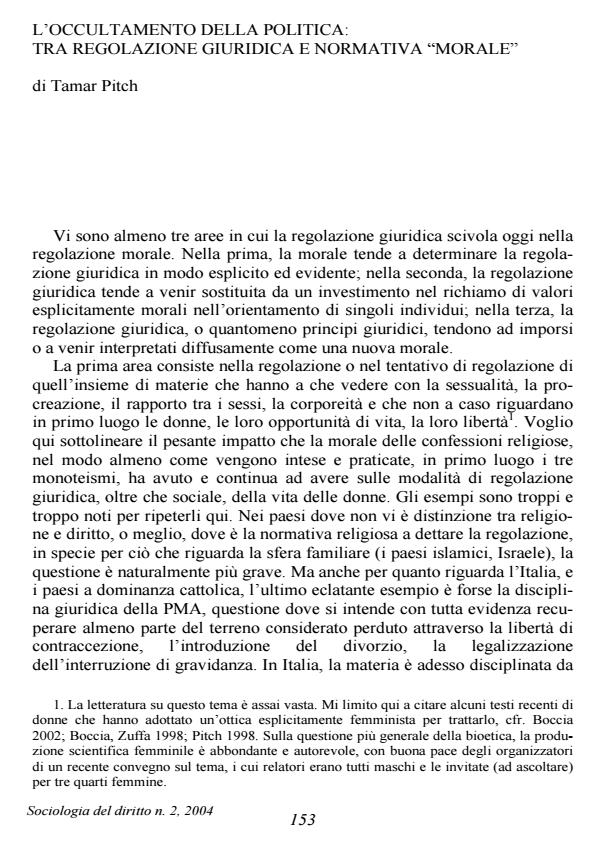L'occultamento della politica: tra regolazione giuridica e normativa morale
Journal title SOCIOLOGIA DEL DIRITTO
Author/s Tamar Pitch
Publishing Year 2004 Issue 2004/2
Language Italian Pages 11 P. File size 96 KB
DOI
DOI is like a bar code for intellectual property: to have more infomation
click here
Below, you can see the article first page
If you want to buy this article in PDF format, you can do it, following the instructions to buy download credits

FrancoAngeli is member of Publishers International Linking Association, Inc (PILA), a not-for-profit association which run the CrossRef service enabling links to and from online scholarly content.
The author analyses three social areas in which she believes that there is a shift taking place from the level of legal regulation to that of moral regulation. She argues that this shift is connected to the crisis of politics, to the hegemony of a public debate that preaches the individualisation and privatisation of community affairs and to the disappearance from the public scene of the topics of inequality and of power. The three areas analysed are procreation and sexuality, the approach to criminal law and human rights. The first area is influenced significantly especially in Italy by religious standards, as opposed to the principle of secularly inspired legislation aimed at protecting and guaranteeing recent female freedoms. The second has become the terrain for experimenting with projects of informal justice: what is examined here is in particular the rhetoric used to justify penal mediation. This rhetoric puts the accent on confession and repentance as the way of tackling both the problem of recidivism and the expectations of victims. The third is the use made these days of the language of human rights, whose meaning is all too often warped to indicate a private, moral-based form of benevolence, or also to justify armed interventions and wars.
Tamar Pitch, L'occultamento della politica: tra regolazione giuridica e normativa morale in "SOCIOLOGIA DEL DIRITTO " 2/2004, pp , DOI: